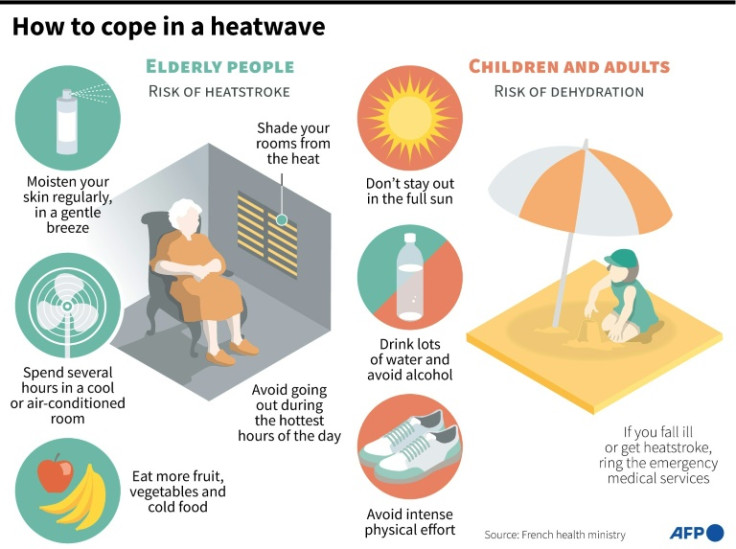What are the symptoms of a heatstroke and how to stay safe?
The UK recorded one of its hottest days on Monday, with a high of 38.1C reported in Suffolk.
The UK is reeling under severe heatwave conditions, with temperatures expected to soon reach 40 degrees Celsius.
One of the hottest days was recorded on Monday, with a high of 38.1ºC reported in Suffolk. The Met Office has also issued its first-ever "Red Extreme" heat warning for parts of the country.
The government has now asked people to stay indoors to avoid getting heatstroke and sunburn. Heatstrokes happen when the body struggles to regulate its temperature and starts to become too hot.
The ideal body temperature is 37ºC and a problem arises when its core temperature reaches over 40ºC. It is at this stage that the brain starts to misfire. You may feel dizzy, confused, and nauseated. You can even lose consciousness if you have been hit by a heatstroke.
People keep telling me that because the UK had a heatwave in 1976, climate change is overhyped.
— Will Norman (@willnorman) July 17, 2022
So here’s the global heat anomaly maps from June 1976 and June 2022. https://t.co/GGVg46UTcI pic.twitter.com/tngiGoEEUl
Other symptoms include shortness of breath, not sweating despite feeling hot, and feeling unwell after having spent at least 30 minutes in a cool place to rest. This is when one needs immediate medical attention.
It can affect anyone: older adults, young infants, and fit and healthy people. However, people with long-term health conditions are particularly at risk.
"When your body temperature rises and rises, your system starts to go into a vicious circle – you get cardiac insufficient, brain insufficient, and there aren't enough fluids," Dr Bharat Pankhania, a senior clinical lecturer at the University of Exeter Medical School, told The Telegraph.
"If you haven't kept hydrated, your blood gets sticky, and that sticky blood forms clots. If they form in what we call end terminal arteries – the heart, brain, gut – then that part of the organ starts to die. That's a stroke," he added.
The doctors suggest that the best way to avoid a heatstroke is to drink lots of water and avoid going out when the temperatures are too high. If someone does show signs of heatstroke, take them to rest in a cool place and slowly increase their fluid intake.
Remove any unnecessary clothing so the body gets time and breathing space to cool down. Do not immediately make them take cold showers, instead wrap them in a bed sheet or a piece of clothing doused in cool water.
If the person still does not feel well and is losing consciousness and the situation is not getting any better, call an ambulance as medics are better equipped to deal with serious cases.























